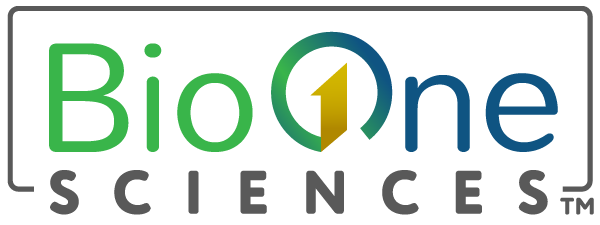
High Cholesterol: Is Diet the Only Factor?
When we think of managing high cholesterol, diet often takes center stage.
While a balanced diet rich in fruits, vegetables, whole grains, and healthy fats is undeniably important, cholesterol levels are influenced by more than just what’s on your plate.
One often overlooked factor is chronic stress — which can manifest in more ways than one. In today's fast-paced world, the link between stress and high cholesterol is gaining more attention, highlighting the importance of a holistic approach to managing heart health.
How Emotional Stress Affects Cholesterol Levels
Chronic stress triggers the release of hormones like cortisol and adrenaline, which can wreak havoc on your cholesterol levels.
In 2023, researchers conducted a study involving 439 bus, truck, and taxi drivers to explore the relationship between work-related stress and cholesterol levels.
The findings revealed that individuals experiencing high levels of occupational stress had elevated LDL ("bad") cholesterol and triglyceride levels, along with reduced HDL ("good") cholesterol.
Here’s why:
· Increased Production of LDL ("Bad") Cholesterol: Stress hormones signal your liver to produce more cholesterol and triglycerides, providing quick energy for the body.
· Lowered Levels of HDL ("Good") Cholesterol: Stress often correlates with lower HDL levels, the cholesterol that helps remove LDL from your bloodstream.
· Prolonged Inflammation: Chronic stress can lead to inflammation, which plays a significant role in heart disease and the buildup of arterial plaque.
Stress-induced cholesterol spikes might not always be reflected in a standard lipid panel, making it even more critical to address stress as part of your overall health strategy.
Beyond Emotions: Environmental Toxins and Cholesterol
Emotional stress isn’t the only kind of stress that can affect our cholesterol levels. From the air we breathe to the water we drink, our bodies are constantly exposed to pollutants like heavy metals, chemical byproducts, and even plastics. These toxins can silently disrupt critical metabolic processes, including those regulating cholesterol.
Here’s how environmental toxins impact cholesterol levels:
· Liver Impairment: The liver plays a crucial role in cholesterol metabolism, balancing the production and clearance of cholesterol. Toxins like cadmium, mercury, and lead can impair liver function, reducing its ability to maintain healthy cholesterol levels.
· Oxidative Stress: Many environmental toxins generate oxidative stress, damaging cells and tissues, including those involved in cholesterol regulation. Oxidative stress can also oxidize LDL cholesterol, making it more harmful and increasing the risk of plaque buildup in arteries.
· Hormonal Disruption: Certain environmental chemicals, known as endocrine disruptors, interfere with hormone regulation. Since cholesterol is a building block for hormones, disruptions in hormonal balance can lead to dysregulated cholesterol production.
· Chronic Inflammation: Persistent exposure to toxins often triggers chronic inflammation, a key driver of high cholesterol and cardiovascular disease.
One study by the C8 Science Panel found that increased exposure to PFOA, a type of PFAS, was associated with higher total cholesterol and LDL cholesterol levels.
Similarly, research published in Environmental Health Perspectives reported that higher PFAS exposure correlated with increased blood lipid levels in adults.
These findings not only highlight the impact of environmental toxins on cholesterol metabolism and cardiovascular health but that diet is certainly not the only factor.
A Holistic Approach to Cholesterol Management
When it comes to managing cholesterol, it’s clear that focusing solely on diet isn’t enough. Emotional stress and environmental toxins are significant contributors to high cholesterol levels and must be addressed as part of a comprehensive strategy for heart health.
Steps to Take Control
1. Manage Stress Levels
Incorporate stress-reducing practices such as mindfulness, meditation, yoga, or regular physical activity. Not only can these habits lower cortisol and adrenaline levels, but they also improve overall well-being.
2. Detoxify Your Environment
Limit exposure to environmental toxins by avoiding processed foods, using non-toxic household products, and filtering your water. A high-quality detox supplement, such as MCM Detox Plus, can also help your body eliminate heavy metals, plastics, and other harmful chemicals that disrupt cholesterol metabolism.
3. Support Liver Health
Since the liver plays a vital role in cholesterol regulation, nourishing it with detoxifying foods like leafy greens, garlic, and turmeric can help. Supplements that support liver function, such as Liver GB Detox Complete, can provide added benefits by enhancing the liver’s ability to process toxins.
4. Adopt a Heart-Healthy Lifestyle
While diet isn’t the only factor, it remains crucial. Combine a nutrient-dense diet with regular exercise and avoid smoking or excessive alcohol consumption to further protect your heart.
All BioOne Sciences supplements are rigorously tested for purity and potency, trusted by people and practitioners worldwide.
Want more support from our therapeutic-grade supplements?
All BioOne Sciences supplements are rigorously tested for purity and potency, trusted by people and practitioners worldwide.


